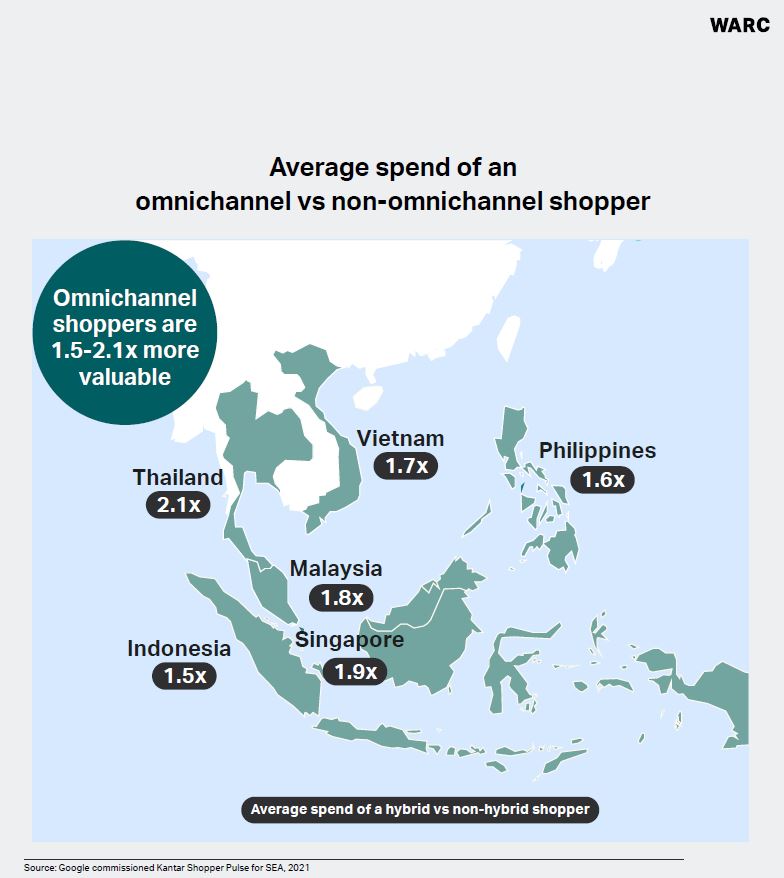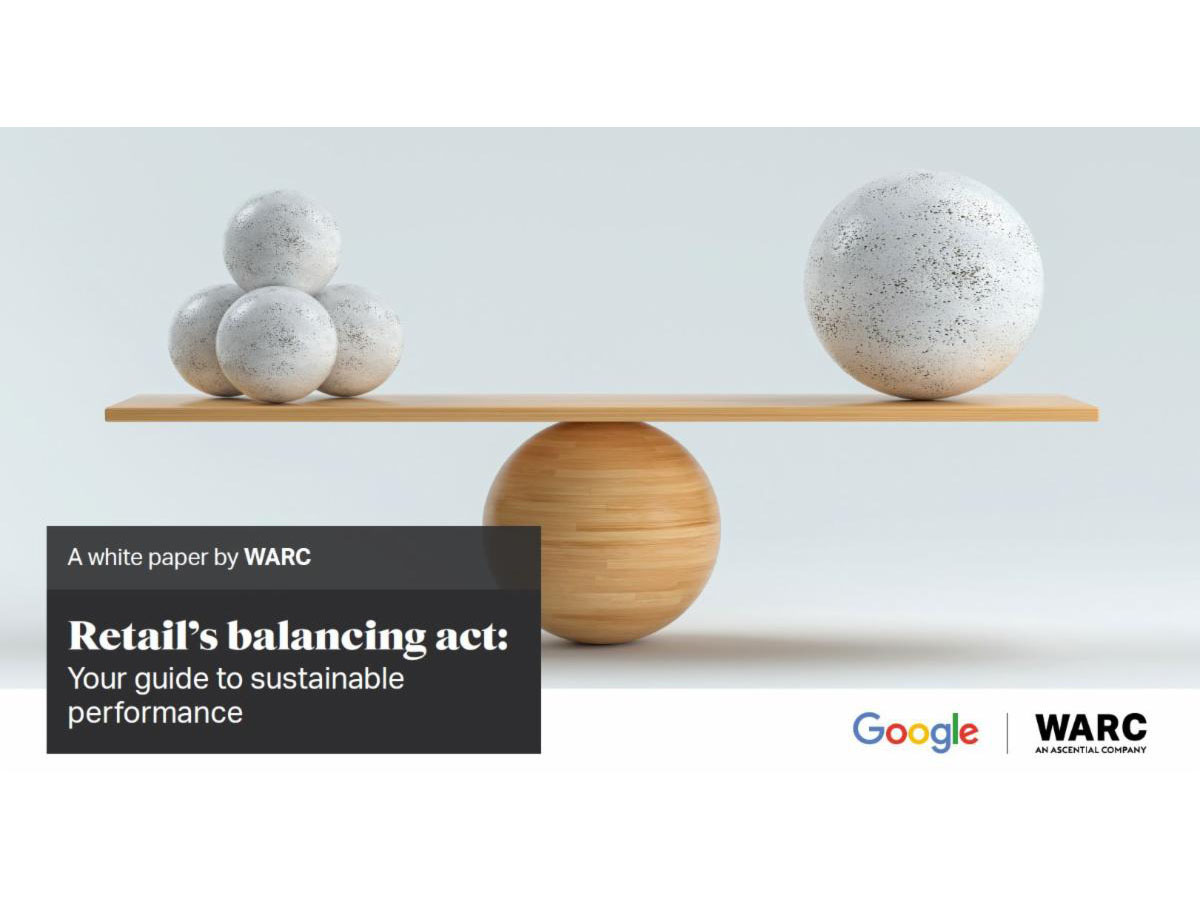News - News In Brief
A Google and WARC report on how to unlock sustainable growth in retail
March 30, 2023
.jpg) Advertisement
AdvertisementA complex post-pandemic retail landscape, including a shift to omnichannel shopping, has resulted in a need to rebalance marketing strategies to ensure customer experiences are both seamless and profitable.
To succeed in retail and deliver both value and sustained growth means taking a balanced and nuanced approach. Getting this balance right is crucial as marketers increasingly come under pressure to do more with less.
In ‘Retail’s balancing act: A guide to sustainable performance’, released by WARC in partnership with Google, the white paper provides marketers with a guide to unpacking three balancing acts to unlock sustainable growth. It also presents industry pain points that make it hard to achieve this balance, consumer viewpoints that shed light on possible ways forward, and offers actionable guidance and case studies on how to respond to challenges as they arise.
Melissa Lee, Sector Director and Head of Retail, Brand, Finance and Government Sales, Google APAC, said: “There have been profound changes in the way consumers research and shop, and for retailers digital is likely to be the foremost playground for consumers to interact with brands. Together with WARC, we wanted to share our experiences in partnering with both large and small retail brands, our perspectives on the challenges marketers might face in 2023 and beyond – and hopefully do our small part to help brands emerge stronger.”
Edward Pank, Managing Director APAC & VP Advisory, WARC, said: “As businesses respond and rapidly digitise their operations to keep up with new ways of shopping, the shift has created new opportunities for retailers to connect with their customers online and leverage data-driven insights to cater to the omnichannel consumer.
“But this shift also means balancing an intricate web of factors to respond to the pressures on profitability. Our white paper in partnership with Google provides valuable insights for retailers looking to navigate this new digital era and achieve sustainable performance.”
The three balancing acts for marketers to unlock sustainable growth outlined in the report are:
Balancing investments over the long and short
Choosing between long and short-term strategies, namely brand and performance marketing, is a ‘false dichotomy’ that does not enable sustainable brand growth and profit.
Both tactics are complementary and needed for successful marketing and marketers should find the balance between the two in order to maintain consumer demand.
While brands may be tempted to discount to secure short-term wins, marketers should invest in brand equity to deliver value, build trust and loyalty to create future demand.
Claus Kristensen, VP, Marketing & Ecommerce, APAC, The LEGO Group, says: “It’s important to constantly optimise what and how you engage with your shopper for conversion. At the same time, you want to take away some volatility by creating loyalty and you do that through brand building. Shoppers are becoming savvier and more conscious. So, while price and convenience are crucial, them identifying with your brand and values is more important.”
Balancing the use of brand(dot)com and marketplaces
The proliferation of emerging digital channels and touchpoints, such as brand(dot)com and marketplaces, has provided brands with exciting new creative playgrounds to experiment with, but it also means more channels to trial and evaluate with limited resources.
In Southeast Asia, marketplaces account for 75% of all post-pandemic online spending and 55% of shoppers utilise brand(dot)com along their path-to-purchase journey.
Peggy Zhu, Senior Director and Head of Brand & Growth Marketing, Shopee, says: “Marketplaces have evolved beyond serving as a transactional platform for completing purchases, and now encompass the full funnel for brands from discovery to purchase. For brands without resources to enable full-funnel marketing on brand(dot)com, investing in marketplaces might be more efficient to meet online business objectives.”
To ensure ROI marketers will need to consider budget and find the right balance across platforms to leverage both marketplaces and brand(dot)com.

Omnichannel shoppers have proven to be higher value customers bringing in 1.5 - 2.1x more value than non-omnichannel customers.Balancing the intricacies of omnichannel
To achieve omnichannel excellence, brands must break down silos and evolve legacy staffing models, both of which are barriers to getting a holistic view of the customer.
Creating a holistic measurement program is a starting point for marketers to gain insight into the multitude of touchpoints, known as the ‘Messy Middle’, that are most effective in driving consumers into a purchase decision.
One way to achieve holistic measurement is by adopting Marketing Mix Modeling (MMM) techniques, which allows marketers to measure the impact of their campaigns and determines how various channels contribute to their goals.
Yan Huang Lu, Head of Growth & Intelligence, Castlery, says: “Leverage your customer data to identify the most important drivers of omnichannel conversions, validate your assumptions, and invest resources behind these drivers. This will help you become more customer centric in your omnichannel strategy, and in turn boost profitability for your brand.”




.jpg)










